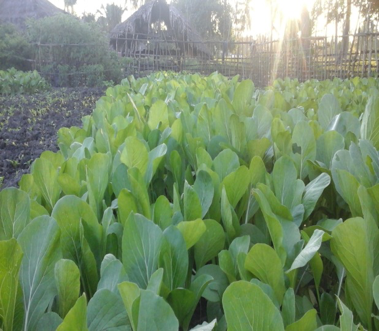An Overview Of Our Solution
- Population Impacted:
- Continent: Asia
Organization type
Population impacted
Size of agricultural area
Production quantity
People employed
Describe your solution
Describe your implementation
External connections
What is the environmental or ecological challenge you are targeting with your solution?
Describe the context in which you are operating
food security: guided group were given training to improve knowledge about food security activities into kegiatang as follows: multiply the seed for each family and auxiliaries (commodities: potatoes, vegetables, grains and beans) activities this has been implemented in the district of Viqueque, among others: the sub-district Ossu (sucos Nahareca, Uaibobo, Uabubo, Uagia, Ossorua, Builale and suco Liaruca. sub-district Uatulalari (suco Macadique, Uaitame, Afalocai, Babulo and suco Matahoi, sub- District Lacluta (sucos Dilor, uma tolu, Ahik and suco Lalini), Sub-district of Viqueque Villa (suco Maluro Bibileo, Luca and suco Bahalarawain. nutrition: each month providing training on how to prepare and consume nutritious foods that are practical to facilitators or volunteers selected by the group benefit (lactating mothers, pregnant women and mothers with children aged 2 years and under) and so the volunteers or facilitators transform the information gained from the training to benefit by way of group meeting household. -group Group also get the benefit of agricultural training in growing vegetables (small plants) on the home page to support the nutritious foods for groups of economic benefit and sustainable development: From the activities that have been in get by auxiliaries in part to the needs of families and partly sold for mendatankan money for the group itself by the group for continued kebutukan group activity ahead.
How did you impact natural resource use and greenhouse gas emissions?
Language(s)
Social/Community
Water
Food Security/Nutrition
Economic/Sustainable Development
Climate
Sustainability
Economic sustainability of the group depends on the routine activities carried Oleg group / community itself with the result that they collect can be marketed for yielding currency in the interests of groups and follow-up action plan forward by group members.
Return on investment
Entrant Banner Image

